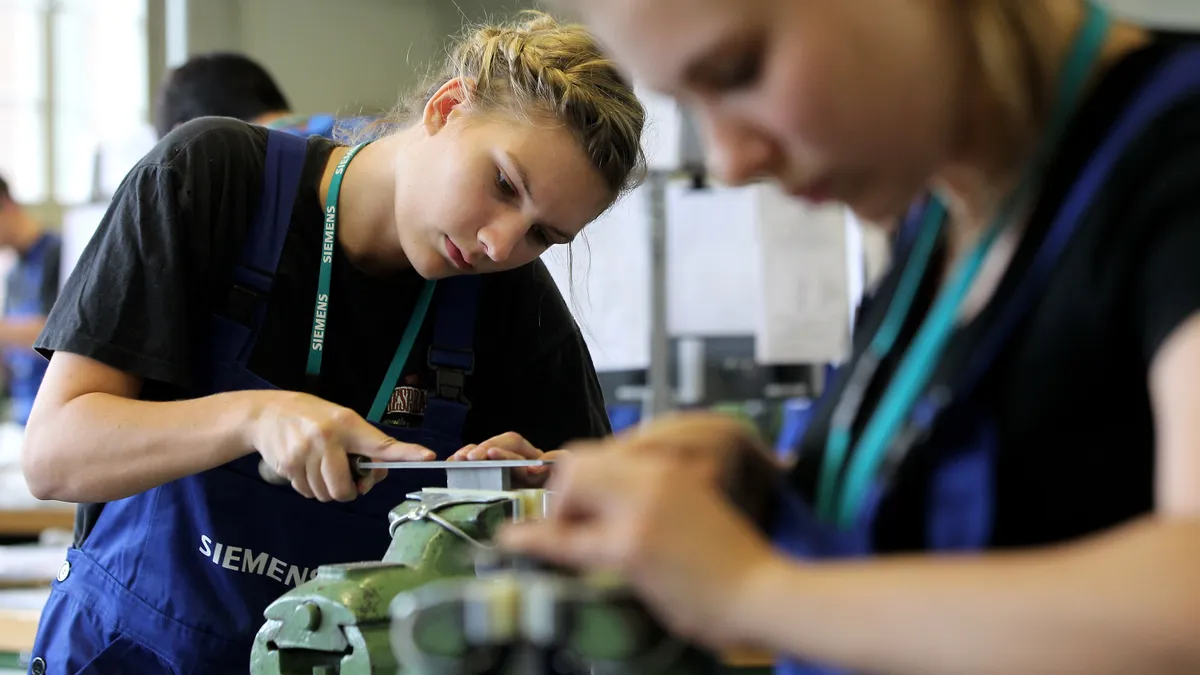Shelley Osborne is the vice president of learning at Udemy. Views are the author's own.
In today's constant state of change, we're all looking for ways to grow, adapt and remain resilient amid uncertainty. So it may not come as a surprise that enrollments in "growth mindset" online courses have surged 206% on Udemy since February. For new grads, a growth mindset can serve as both a core differentiator for success and a way of maintaining sanity in this new economic reality.
You've probably heard the term "growth mindset" before, but often it's applied to learning and education. How does having a growth mindset apply to the workplace and how do you know if employees and applicants have one? Why is it important and how can you cultivate it?
Understanding a growth mindset
The concept of a growth mindset was developed by psychologist and Stanford University professor Carol Dweck to help explain why some children thrive when faced with challenges and others give up. Having a growth mindset means a person sees challenges as opportunities for learning and failure as an acceptable part of the ride. A fixed mindset, in contrast, is the belief that intelligence is innate and finite — you either have it or you don't — and that risk-taking should be avoided if failure is possible.
From this, you can extrapolate how nurturing a growth mindset culture in the workplace can be a competitive advantage for businesses looking to innovate or respond quickly to changing markets or technologies.
A growth mindset also can encourage risk-taking. Who would launch a start-up in a recession? Slack, Pinterest, and Airbnb did. Maybe it was part luck, smarts and connections that enabled these companies to survive and thrive, but I'd venture that the founders also had a certain mindset that enabled them to see opportunities in a terrible market.
Assess mindset
Graduating during a pandemic and recession can be really challenging. The jobs and internships students were counting on may now be gone. Across the world, people are sick or dying or can't pay rent. Graduates don't need a pep talk — they need to grieve and deal with loss and disappointment. That said, the job market is different. They need to learn how to deal with these changes in a productive way to not only successfully find a job, but also thrive in a reshaped work environment.
Everyone feels differently about change — and that's ok. But its useful for grads to conduct a self-assessment to determine whether they naturally lean toward a growth or fixed mindset. Realistically, everyone is some combination of both and our reactions can flux depending on the situation. It's helpful to use this general understanding as a lens to evaluate actions, and consider what you should stop doing, keep doing, or start doing differently. New grads should ask themselves:
● What is most important about my role/skill set now and how has it changed?
● What are my most important goals now?
● What work is the most important or useful to get done now?
● What's not important any more? What do I need to stop doing so that I can refocus?
Training for a growth mindset
While a lot of things are out of individuals' control right now, perhaps they can take some solace in the fact that one's personal mindset is within their control. Even if an individual is more naturally cautious about taking on new challenges, here are some strategies learning professionals can use to help individuals better manage themselves:
Reframe perspective. Looking at a problem or challenge from a different viewpoint can someone evaluate the problem, challenge their assumptions put them in a more positive frame of mind. For example, ask: How would your best friend or a fictional character that you respect react? What would you do if you couldn't fail? What advice would you give a co-worker in the same situation?
Be future-thinking. We can subconsciously limit our behavior and undermine our success and ability to adapt by falling back on old patterns and habits. However, once you realize what you're doing, you can try to focus instead on the future. Ask: what does the future look like and how do I combine my skill set with this opportunity to create a new vision?
Look to real-life behavior. This is a technique used in interviewing — asking how a candidate handled a past situation to glean clues about how they'd handle themselves in the future. The same can be used in training for a growth mindset: Can you think of ways you have surmounted challenges in the past? Or, if you could do it again, what you would do differently? You can use this information to help guide you now.
Leverage learning resources. A growth mindset means embracing learning. There are tons of resources available to help individuals learn how to better adapt to and thrive in an uncertain work environment. For example, Udemy offers a "Change Agility in the Workplace" course, to help employees build skills to manage their reactions to change successfully and become more resilient.
No one can accurately predict or understand the future all the time. However, attempting to envision what's possible when faced with difficulty is honorable. I often tell my team that every challenge they're facing is an opportunity to add a new tool to their toolbox.
Although it's a necessity right now, if individuals can innovate successfully, they might find new ways forward — that may be more inclusive, engaging and environmentally friendly than before. Stretching someone's beliefs of what is possible serves to strengthen their growth mindset "muscle" and helps open them up to possibility and new opportunities.


















